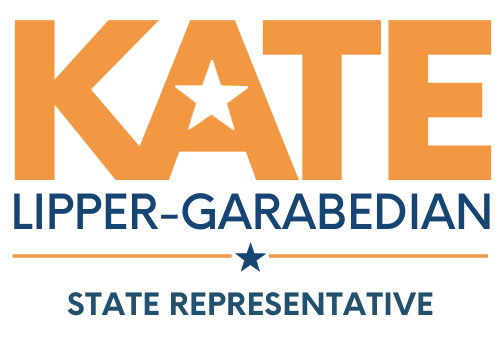State Representative Lipper-Garabedian Joins the Massachusetts House of Representatives to Pass Bill to Prevent Abuse and Exploitation, Enhance Protections for Survivors
BOSTON – Tuesday, January 23, 2024 – On Wednesday, January 10, Representative Kate Lipper-Garabedian (D-Melrose) joined the Massachusetts House of Representatives in passing legislation that combines several separate legislative initiatives into one bill that will help to prevent abuse and exploitation, while also enhancing protections for survivors. The legislation addresses both teen sexting and image-based sexual assault, commonly referred to as “revenge porn;” expands the definition of abuse to include coercive control for the purposes of obtaining a restraining order; and extends the statute of limitations for certain domestic violence offenses from six years to 15 years.
“I was proud to join a unanimous House in supporting H4241, An Act to prevent abuse and exploitation,” said Representative Lipper-Garabedian. “This comprehensive bill is critical in supporting survivors and those experiencing domestic and sexual violence. Throughout my career, I have worked to ensure state laws are attuned to technological developments, including more than a decade ago when I worked as an attorney in private practice counseling states about the need for statutory updates to address teen sexting. This bill takes critical steps to protect victims of revenge porn and survivors of coercive control and to educate minors about the long-term dangers of certain digital behavior.”
“This legislation modernizes our criminal laws by ensuring that those who share explicit images of others without their consent face punishment, while also educating minors on the dangers of sharing explicit images of themselves rather than imposing some of the criminal justice system’s most severe consequences,” said House Speaker Ronald J. Mariano (D-Quincy). “I’m also incredibly proud of this legislation’s bolstered protections for survivors, including the added consideration of nonphysical forms of abuse for those seeking restraining orders from their abusers. I want to thank Chairman Day and the Judiciary Committee, along with each bill sponsor and all my colleagues in the House for prioritizing this vital legislation.”
Currently, minors who possess, purchase, or share explicit photos of themselves or other minors are charged with violating Massachusetts child pornography laws and are required to register as sex offenders. The legislation passed today instead authorizes commitment to the Department of Youth Services (DYS), but also allows minors to be diverted to an educational program in lieu of criminal punishment. A district attorney, however, is allowed to petition the court to bring criminal charges in extreme cases.
The educational diversion program, to be created by the Attorney General in consultation with the Department of Elementary and Secondary Education (DESE), DYS, and the District Attorneys Association, would provide teenagers with information about the legal and nonlegal consequences of sexting, which would be made available to school districts. DESE should also encourage districts to implement media literacy programs in their schools as a prevention measure.
In addition to teen sexting, the bill addresses the nonconsensual distribution of explicit images by adults by establishing a penalty in the existing criminal harassment statute, including up to two and a half years of prison time and/or a monetary fine of up to $10,000. The bill increases the upper limit of the fine for criminal harassment from $1,000 to $5,000. Under this bill, a victim may also petition the court for a harassment prevention order against a person who has violated this statute.
The bill passed today also adds coercive control to the definition of abuse. Coercive control is a nonphysical form of abuse which includes a pattern of behavior, or a single act intended to threaten, intimated, harass, isolate, control, coerce or compel compliance of a family or household member that causes the family or household member to fear physical harm or to have a reduced sense of physical safety or autonomy. Examples of coercive control include threating to share explicit images, regulating or monitoring a family or household member’s communications and access to services, and isolating a family or household member from friends or relatives.
The legislation passed today also extends the statute of limitations for assault and battery on a family or household member or against someone with an active protective order from six years to 15 years. This change brings the Massachusetts statute of limitations for these domestic violence offenses in line with the statute of limitations for rape, assault with intent to commit rape and sex trafficking.
“An Act to prevent abuse and exploitation” (H.4241) passed the House of Representatives 151-0. It now goes to the Senate for their consideration.
###
